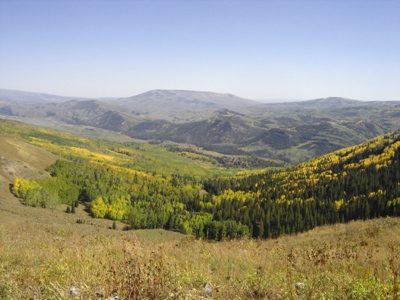SALT LAKE CITY (AP) — Wildlife officials want to expand and preserve the undeveloped area surrounding Utah’s Tabby Mountain.
However, Utah’s School and Institutional Trust Lands Administration, which oversees the nearly 44-square-mile (114-square-kilometer) block of land, has held out for top dollar, rejecting a previous $40 million offer from the state, the Salt Lake Tribune reportedWednesday.
Now, trust lands officials have indicated they are ready to sell.
“After the Book Cliffs, this is among the top five areas that are important for all the public, whether you are a big-game hunter or a bird-watcher,” said Bill Christensen, recently retired regional director for the Rocky Mountain Elk Foundation. “It’s a big piece of ground with a high number of species. It has (mountain) lions and bears and all that.”
Gov. Gary Herbert included a $20 million appropriation in his proposed 2019 budget toward setting aside a “state forest” on the lands straddling Duchesne and Wasatch counties, about 60 miles (100 kilometers) southeast of Salt Lake City.
But the governor’s request can only cover half the deal to buy Tabby. The rest would come from the agency’s federal and private partners, according to Division of Wildlife Resources Assistant Director Ashley Green.
If the Utah Department of Natural Resources acquires Tabby, the land would become part of the state’s adjacent Tabby Mountain Wildlife Management Area, Green said.
“This parcel is unique because all the (nearby) land we own is winter range, and this would give us the higher-elevation summer range,” Green said. “Our primary goal is wildlife habitat, public access and recreation, and forest stewardship and improvement. We have access now to the block, but that is not guaranteed.”
The Tabby block recently appraised for $41 million, and Utah’s School and Institutional Trust Lands Administration is obligated to consider offers from any party that might pay more, according to Deputy Director Kim Christy.














